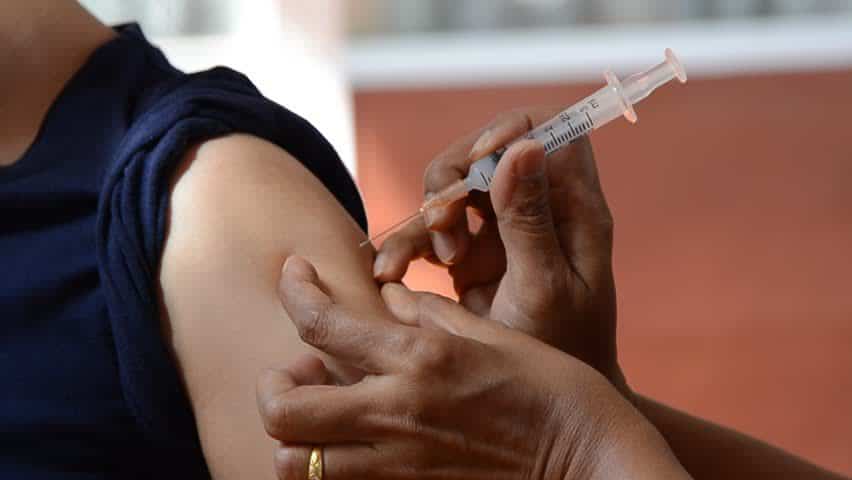Contents:
- Medical Video: Adults Need to Stay Up to Date on Vaccines Too (HD)
- Understand the types and schedules of diphtheria vaccines
- Have you ever had diphtheria vaccine when you were young, how come you still get it when you are an adult?
- When will the diphtheria vaccine be given to adults?
Medical Video: Adults Need to Stay Up to Date on Vaccines Too (HD)
Recently, diphtheria is back in Indonesia. Diphtheria is actually an old disease and there is already a antidote vaccine called DPT vaccine. But, diphtheria is again attacking adults who have had a diphtheria vaccine since childhood. How come? Then, does this mean that adults must be vaccinated again?
Understand the types and schedules of diphtheria vaccines
Diphtheria is a disease caused by Corynebacterium and usually attacks the tonsils, throat, nose and skin. This disease spreads rapidly through airborne particles through coughing, sneezing, or laughing. If you get this disease, you will feel symptoms such as sore throat, hoarseness, to respiratory problems. In fact, diphtheria can cause death if it is not immediately treated so that it requires prevention in the form of a vaccine.
The vaccine for diphtheria itself is of three types, namely DPT-HB-Hib, DT vaccine, and Td vaccine. This vaccine is given at different ages, including:
- Infants under one year are given three doses of DPT-HB-Hib vaccine with a distance of one month
- 18-month-old children are given one dose of the DPT-HB-Hib vaccine
- Grade 1 elementary school children are given one dose of DT vaccine in November
- Second grade school children are given one dose of Td vaccine in November
- Elementary school grade 5 children are given one dose of Td vaccine in November
Now, it's time for you to ascertain whether your child has received complete immunizations according to his schedule, including this diphtheria vaccine. If it is considered incomplete, it will be completed immediately. Because this could be the child will have the risk of diphtheria when he is an adult.
Have you ever had diphtheria vaccine when you were young, how come you still get it when you are an adult?
The emergence of diphtheria cases in adults is mostly caused by not being vaccinated or immunization status which is incomplete since childhood. That's why you need to make sure you have received diphtheria vaccine or not. If you haven't already, then you still need to be immunized again to prevent this disease.
So, what if you have been vaccinated, but still get diphtheria when you grow up? Well, even though you have been vaccinated, your immune system against diphtheria can decrease over time. This will be exacerbated if there is no maximum prevention of diphtheria.
Not to mention with some parents who consider immunization does not have any effect on the immune system so that they reject diphtheria vaccine for children. This causes a gap for diphtheria to re-enter and spread to children and adults.
When will the diphtheria vaccine be given to adults?
The diphtheria vaccine for adults uses the Td / Tdap vaccine, namely the DPT vaccine with antigen and pertussis reduction. The difference is that Tdap uses acellular pertussis components, meaning that pertussis bacteria are made inactive so that they rarely cause fever.
Ideally, the diphtheria vaccine is given as many as three doses from the age of twoup to the age of 18 (age 5 years, 10-12 years, and 18 years). After that, this vaccine will be more effective if given every 10 years for a lifetime. Why? Because, the vaccine can only provide protection for 10 years, so after 10 years it needs to be given booster or amplifier.
According to the CDC, giving diphtheria vaccine is given at the age of 19-64 years in one dose. Following is the schedule for giving diphtheria vaccine for adults:
- Adults who have never received the Td vaccine or incomplete immunization status, given 1 dose of Tdap vaccine followed by Td vaccine as a booster every 10 years.
- Adults who are not immunized at all, given the first two doses at a distance of 4 weeks and the third dose given after 6 to 12 months from the second dose
- Adults who have not completed three doses of Td vaccine the primary series is given residual doses that have not been met
In Indonesia alone, there is no diphtheria immunization program for adults. This is why you need to make sure your immunization status is complete or not. If it is not yet, immediately the diphtheria vaccine to prevent diphtheria.
If there is one person who is suspected of diphtheria in the environment around you, then you should immediately ask to be re-vaccinated even though you have been vaccinated when you were little. This aims to increase your immunity from transmission of diphtheria.












